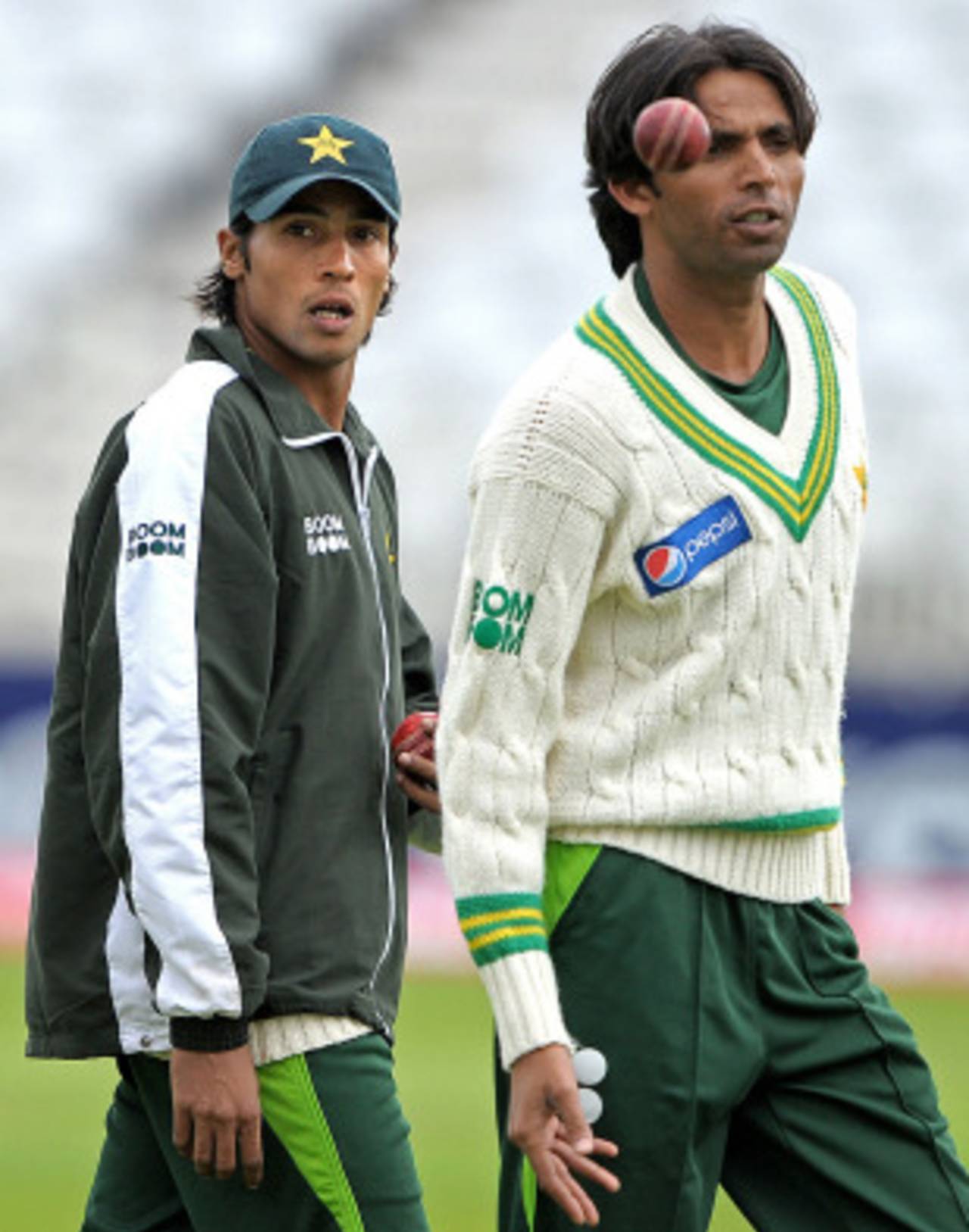Fixing, whether it be of the spot or match variety, is a major challenge for cricket. Only prompt and firm action can hope to resolve the issue.
With that in mind, it was disturbing to read suggestions that 18-year-old fast bowler Mohammad Amir, if found guilty, could avoid a life ban if he gives evidence against his Pakistan team-mates. What sort of message does that convey? That you'll be excused if you claim you're too young to decipher right from wrong?
What message does it send the crooks? Be sure to "groom" young players and then your "investment" has a greater chance of paying long-term dividends. And doesn't it tell an honest player, "You're a fool. You should've grabbed the money"?
The honest players have already suffered enough just from playing in an era tainted by the fixers.
If he's guilty, in a roundabout way the ICC would do Amir a favour by banning him for life. If he were guilty and was to be reinstated a couple of years down the track, he'd still be in the clutches of the crooks. Any outstanding debts or threats to him or his family would still be hanging over his head. The only way you escape the clutches of these unsavoury characters is the same as the mafia exit strategy: in a wooden box. At least with a life ban from cricket, the youngster escapes their clutches and can get on with what remains of his future.
And if he's forgiven there's the not-so-minor matter of how he'd be accepted by the Pakistan team. Self-interest is never a great team-spirit builder, and ratting on your mates, no matter how devious they might be, is not the way to ingratiate yourself.
If you think that's melodramatic then consider the crooks' background. In many cases they will have built their tainted fortune on such nefarious activities as gun- or drug-running. They have no scruples. Once that's understood you begin to comprehend the enormity of cricket's problem.
Fixing is not a Pakistan problem; it has the power to bring the game to its knees.
Cricket has already missed a golden opportunity to send a strong message to crooks, players and administrators. Pakistan should've been suspended from competition the moment the Lord's Test was completed.
"Can't do it," you say, "it'll ruin the game."
Well, if fixing isn't eradicated then there'll be no game of any consequence to ruin.
How can they play the current ODI series between England and Pakistan?
The administrators have to assume once a player is in the clutches of the crooks, it's a lifetime deal. That's why Pakistan's refusal to heed the strong warnings issued by Justice Qayyum in his illuminating 1999 report have come home to roost
Mr Fixit in London said he has seven Pakistan players in his pocket and they'd agreed to "throw" two of the ODIs. Three of the Pakistan players are currently under suspension. That leaves four possibly still playing in these matches. Will those players refuse to do the dirty deed because of all the publicity?
Cricket shouldn't have taken that chance. After all, it's not the players who decide the fix and when it'll occur. The administrators have to assume once a player is in the clutches of the crooks, it's a lifetime deal. That's why Pakistan's refusal to heed the strong warnings issued by Justice Qayyum in his illuminating 1999 report have come home to roost. The game is still littered with former players named by Qayyum, cricketers he suggested should never hold positions of responsibility in the game.
Rather than send a strong message, the game has averted its eyes. It's not surprising that 15 years after the initial strong indications the game wasn't clean, we still have evidence of widespread corruption. Given that the Qayyum report was largely ignored and player bans overturned it's not surprising the crooks don't feel threatened.
Like all of cricket's major problems, fixing can't be properly addressed until the issue of the ICC's flawed structure is resolved. There can be no excuse now for not addressing this issue with great resolve and integrity. The game's future is on the line.
The honest players and the fans deserve a concerted effort to clean up the game. If drastic action isn't taken to eradicate fixing it won't be a matter of the administration gambling with the game's future; they'll be delivering it a death sentence.
Former Australia captain Ian Chappell is now a cricket commentator and columnist
